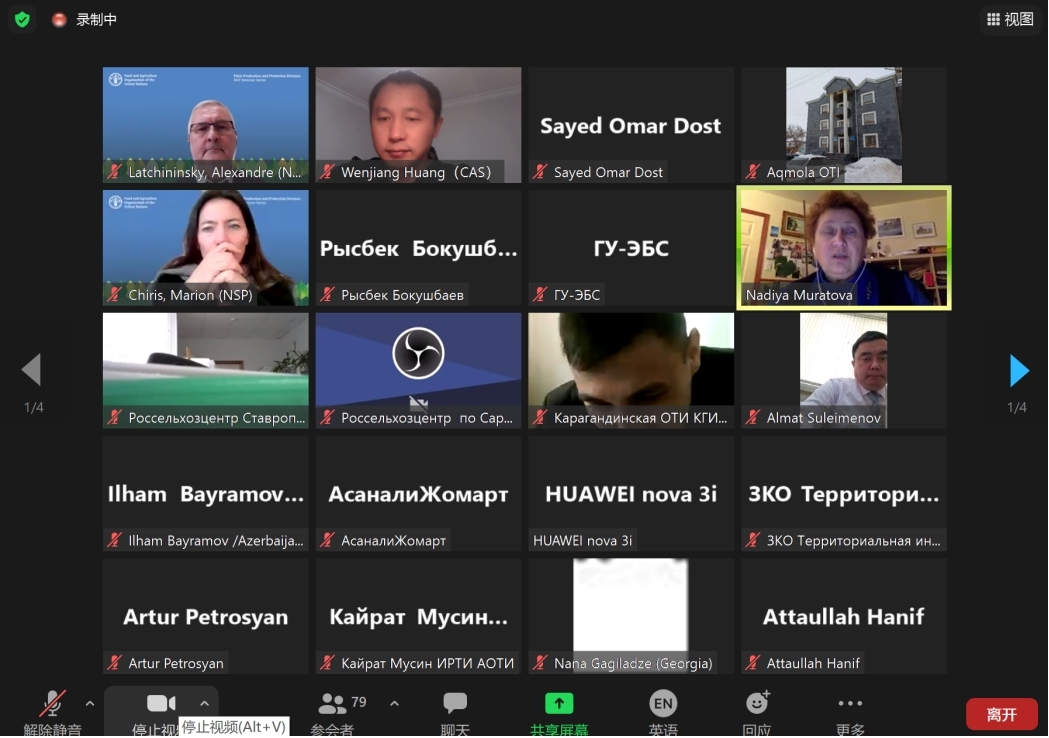AIR Researchers Contribute to Locust Monitoring and Early Warning Activities for FAO
Prof. HUANG Wenjiang and Associate Professor DONG Yingying from the Aerospace Information Research Institute (AIR), Chinese Academy of Sciences (CAS) were invited to attend a seminar on locust monitoring and early warning organized by the Food and Agriculture Organization of the United Nations (FAO) on Feb. 16-18.
A worldwide locust upsurge is hitting countries around the globe, posing a threat to food and ecological environment security. Government officials and researchers from across the world discussed global locust monitoring and early warning, multinational joint efforts to ensure food security and ecological stability.
AIR experts talked about their progress in large-scale remote sensing monitoring, early warning, and losses assessment of locusts, especially the dynamic monitoring and warning of desert locusts, with focuses on the locust habitat, migration routes monitoring and forecasting, and damage evaluation in Kenya, Pakistan, Ethiopia, Somalia, and Yemen. A total of 29 monitoring and warning reports have been issued and the results have been adopted by FAO and Global Biopersity Information Facility (GBIF).
In China, AIR’s research into the migratory locust and the yellow-spined bamboo locust have helped the Ministry of Agriculture and Rural Affairs as well as National Forestry and Grassland Administration with their locust control activities.
This seminar was hosted by FAO and participated by more than 200 experts and scholars.

A snapshot of the virtual seminar.
References:
Desert Locust Monitoring, Forecasting and Assessment - Datasets - "FAO catalog"



News & Events